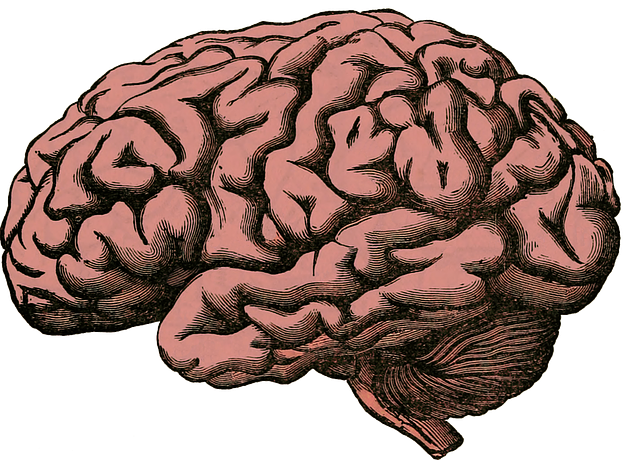Understanding mental wellness programs, such as Parker Anger Management Therapy (PAMT), is vital for evaluating their effectiveness and promoting individual & community well-being. PAMT offers a personalized, revolutionary approach to anger management through comprehensive evaluation, combining psychological assessments, behavioral observations, and self-reporting. Quantitative methods like surveys and standardized tests measure immediate outcomes, while qualitative techniques like interviews and focus groups delve into participants' emotional journeys and coping strategies for long-term mental wellness improvements.
Mental wellness programs are gaining crucial attention, and evaluating their effectiveness is essential. This article explores various evaluation methods, offering a comprehensive guide to understanding their impact on participant well-being. From quantitative techniques like surveys and data analysis to qualitative approaches such as interviews and focus groups, we uncover insights into what works best. We highlight the unique Parker Anger Management Therapy (PAMT) approach, showcasing innovative evaluation strategies that revolutionize mental health support.
- Understanding Mental Wellness Programs and Their Impact
- Parker Anger Management Therapy: A Unique Approach to Evaluation
- Quantitative Assessment Techniques for Program Effectiveness
- Qualitative Methods: Uncovering Insights from Participant Experiences
Understanding Mental Wellness Programs and Their Impact

Understanding Mental wellness programs is paramount in evaluating their effectiveness. These initiatives, designed to enhance mental health and well-being, encompass a wide array of strategies, from cognitive behavioral therapy and mindfulness practices like Compassion Cultivation to innovative approaches such as Parker Anger Management Therapy. Each program aims to address specific mental health challenges, targeting issues like depression prevention and fostering coping mechanisms.
By examining the theoretical foundations, target populations, and implementation methods, evaluators can gain insights into the potential impact. Well-designed evaluations should assess both short-term outcomes, such as changes in symptoms or behavior, and long-term effects on overall mental wellness. This holistic approach ensures that programs are not only effective in the moment but also contribute to sustainable positive change for individuals and communities.
Parker Anger Management Therapy: A Unique Approach to Evaluation

The Parker Anger Management Therapy (PAMT) is a distinct and innovative approach to evaluating mental wellness programs, particularly focusing on anger management. This therapy goes beyond traditional methods by integrating dynamic strategies that cater to individual needs. PAMT recognizes that anger is a complex emotion with multifaceted origins, thus requiring tailored interventions. By employing a nuanced evaluation framework, it assesses not only the intensity of anger but also its underlying causes, triggers, and expressions in various contexts.
This method involves a combination of psychological assessments, behavioral observations, and self-reporting techniques. It includes measuring emotional regulation skills, conflict resolution techniques, and the impact on interpersonal relationships. Public awareness campaigns development is also integral to PAMT, aiming to destigmatize anger and promote healthier expression. Moreover, burnout prevention strategies for healthcare providers are considered, ensuring that those involved in delivering these programs remain resilient and effective over time.
Quantitative Assessment Techniques for Program Effectiveness

Quantitative assessment techniques play a pivotal role in evaluating the effectiveness of mental wellness programs like Parker Anger Management Therapy. These methods involve the use of structured tools and measures to gather data that can be analyzed statistically, providing concrete insights into program outcomes. Surveys, questionnaires, and standardized tests are commonly employed to assess changes in participants’ emotional regulation, emotional intelligence, and other relevant constructs pre- and post-program.
For instance, healthcare provider cultural competency training often incorporates quantitative assessments to gauge the impact on practitioners’ skills and attitudes. Similarly, emotional regulation and emotional intelligence can be quantified through validated scales, allowing researchers and professionals to track improvements accurately. The data collected through these quantitative techniques contribute significantly to evidence-based practice by identifying what works, for whom, and under what conditions, ultimately refining program design and delivery.
Qualitative Methods: Uncovering Insights from Participant Experiences

Qualitative methods play a pivotal role in evaluating mental wellness programs by providing a deep understanding of participant experiences and perspectives. Unlike quantitative approaches that focus on statistical analysis, qualitative techniques encourage exploration and interpretation. Through in-depth interviews, focus groups, and surveys with open-ended questions, researchers can uncover nuanced insights into the impact of interventions like Parker Anger Management Therapy. This allows for a more comprehensive grasp of participants’ emotional journeys, challenges faced, and strategies employed during their mental wellness journey.
By delving into these personal narratives, evaluators can assess the effectiveness of programs in fostering positive thinking and stress management skills. For instance, within the context of a community outreach program implementation, qualitative methods can reveal how participants’ relationships with peers and mentors influenced their ability to cope with stressors. These insights are invaluable for refining and improving mental wellness initiatives, ensuring they align closely with the diverse needs and experiences of those they serve.
Evaluating mental wellness programs is essential to understanding their impact and effectiveness. From quantitative assessments measuring program outcomes to qualitative methods exploring participant experiences, various techniques provide valuable insights. As demonstrated by innovative approaches like Parker Anger Management Therapy, unique evaluation strategies can significantly enhance treatment results. By combining these methods, professionals can comprehensively gauge the success of mental wellness initiatives, ensuring they meet the diverse needs of those seeking support.











